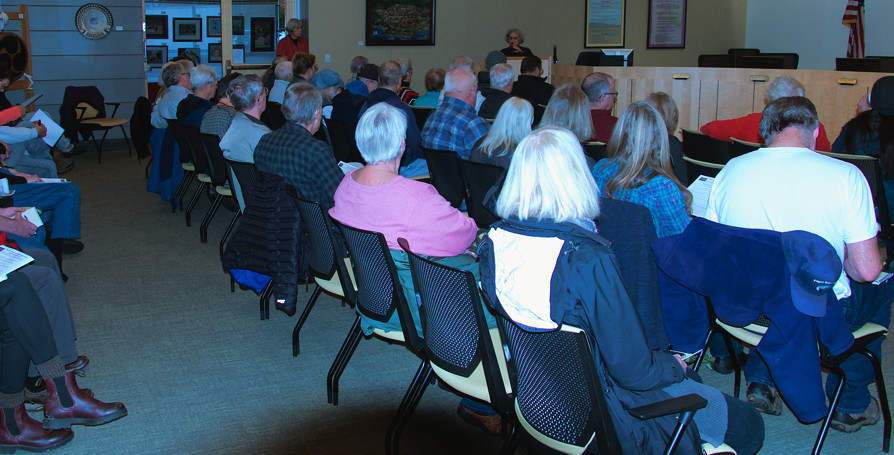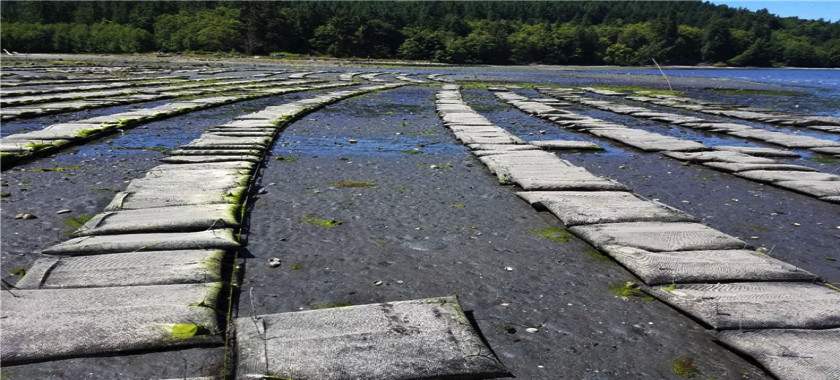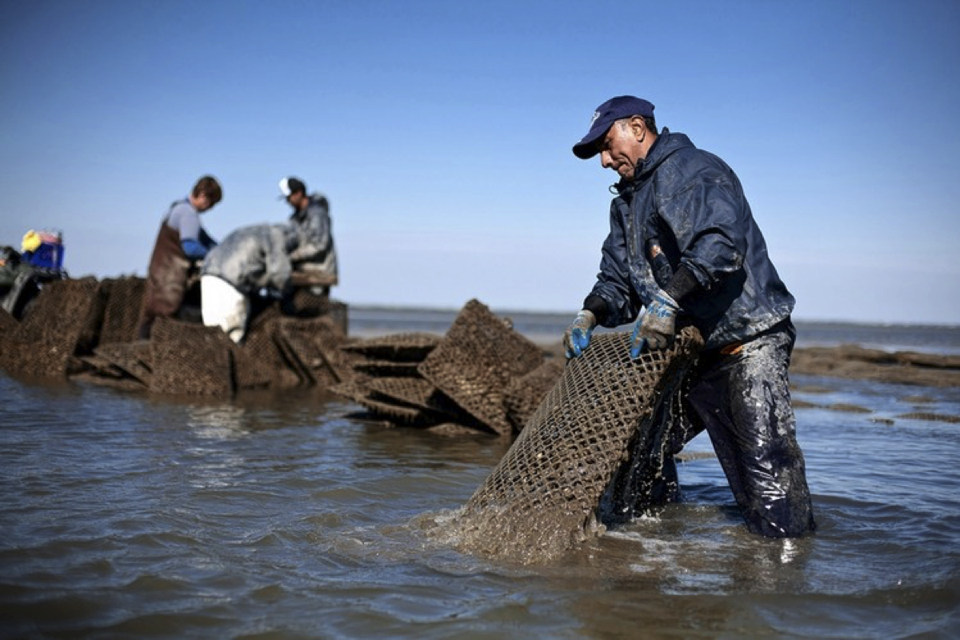Nov. 16, 2019 Meeting on Proposed Industrial Oyster Farm in Dungeness Nat’l. Wildlife Refuge
PPF board members, Darlene Schanfald and Janet Marx, and member Cherri Mann hosted a full house at the Sequim City Council Chambers on the afternoon of November 16. It was an excellent opportunity for folks (including an employee and a few supporters of the developer in the audience) to learn and exchange information on the project.

Janet Marx & Darlene Schanfald facing the audience at the outset of the meeting.

Darlene Schanfald answers a question from the audience…

Plastic oyster bags in an industrial oyster production site…

Moving bags…

An example of the type of plastic bags to be used on the National Wildlife Refuge oyster production site…
The most important thing you can do is submit email or written comments stating your opposition to the commercial oyster farm.
Send to: Clallam County DCD, 2236 East 4th Street, Suite 5, Port Angeles, WA 98362 or email gballard@co.clallam.wa.us Be sure to reference – SHR2017-00011
You are encouraged to read the documents B.0 thru B2.6 at the DCD website
- 50 acres of protected intertidal bottomlands will be leased to the applicant.
- 34 of the acres will be industrially farmed — reducing needed resting and feeding areas for local and migratory birds and salmon.
- The oyster operation is located in the Refuge’s highest use area for waterfowl.
- 80,000 plastic on-bottom plastic bags will alter and damage essential acres of benthic life consisting of microorganisms that feed larger life forms.
- There is a danger of ensnaring small mammals and birds attracted to the plastic bags.
- Bag coverage and in-water activities by the growers will impact spawning and foraging areas of feeder fish.
- The plastic bag fraying and breakage will introduce more plastic debris into our marine ecosystem. These will remain in the sediment, drift with tides and currents, and can be ingested by oysters, salmon and birds.
- These plastics absorb metals and attract toxins such as PCBs increasing the toxicity to the animals.
- At low tides, the thousands of bags and will be visible to nearby residents and Refuge visitors.
- Oyster growing, maintenance and harvesting will inhibit future eelgrass growth.
- Never ending: the requested lease is for 10 years with unlimited renewals.
- The applicant hasn’t addressed these 3 dangers that affected their earlier shellfish farm:
~ Denman Island Disease (a parasite that attacks juvenile oysters);
~ Oyster Drills (these drill into oyster shells & meat, rendering them useless to sell & eat);
~ warming waters: (this renders shellfish growing problematic) - Additional Bay loss: Approval of this commercial oyster farm could set a precedent for more commercial shellfish farming in Dungeness Bay.
- There is untold shoreline loss throughout the State due to commercial shellfish operations. State agencies support these operations and are not protecting our bays and estuaries. Do we need more operations?
CLALLAM COUNTY HEARINGS EXAMINER’S PUBLIC HEARING: THURSDAY NOVEMBER 21, 1:00 PM


